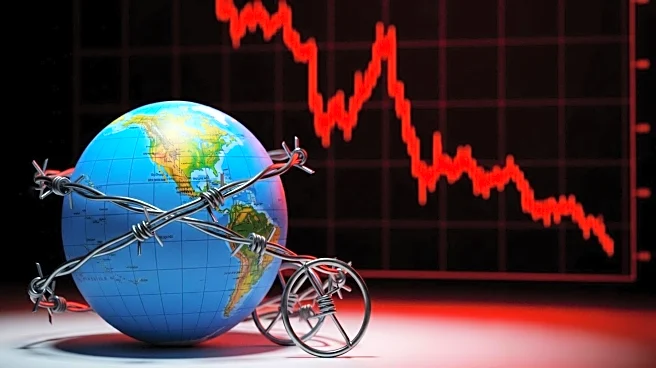What's Happening?
India's equity benchmarks opened lower on Friday due to losses in pharmaceutical shares following President Trump's announcement of a 100% tariff on branded and patented drugs imported into the U.S. The Nifty 50 index fell by 0.29% and the BSE Sensex dropped by 0.25%. The U.S. accounts for over a third of India's pharmaceutical exports, which primarily consist of generic drugs. These exports had risen by 20% to approximately $10.5 billion in fiscal 2025. The tariffs, effective October 1, are part of a broader set of levies on imported goods, including heavy-duty trucks.
Why It's Important?
The imposition of tariffs by the U.S. on Indian pharmaceutical exports is significant as it affects a major sector of India's economy. The pharmaceutical industry is a key contributor to India's export revenue, and the tariffs could lead to reduced competitiveness of Indian drugs in the U.S. market. This move may also strain trade relations between the two countries and impact the profitability of Indian pharmaceutical companies, potentially leading to job losses and reduced investment in the sector.
What's Next?
The tariffs are set to take effect on October 1, and Indian pharmaceutical companies may need to explore alternative markets or adjust their pricing strategies to mitigate the impact. The Indian government might engage in diplomatic discussions with the U.S. to negotiate the terms or seek exemptions. Additionally, there could be increased lobbying from industry groups to influence policy changes.
Beyond the Headlines
The tariffs could lead to a reevaluation of trade policies between India and the U.S., potentially affecting other sectors. There may be ethical considerations regarding access to affordable medication in the U.S., as tariffs could increase drug prices for American consumers.









